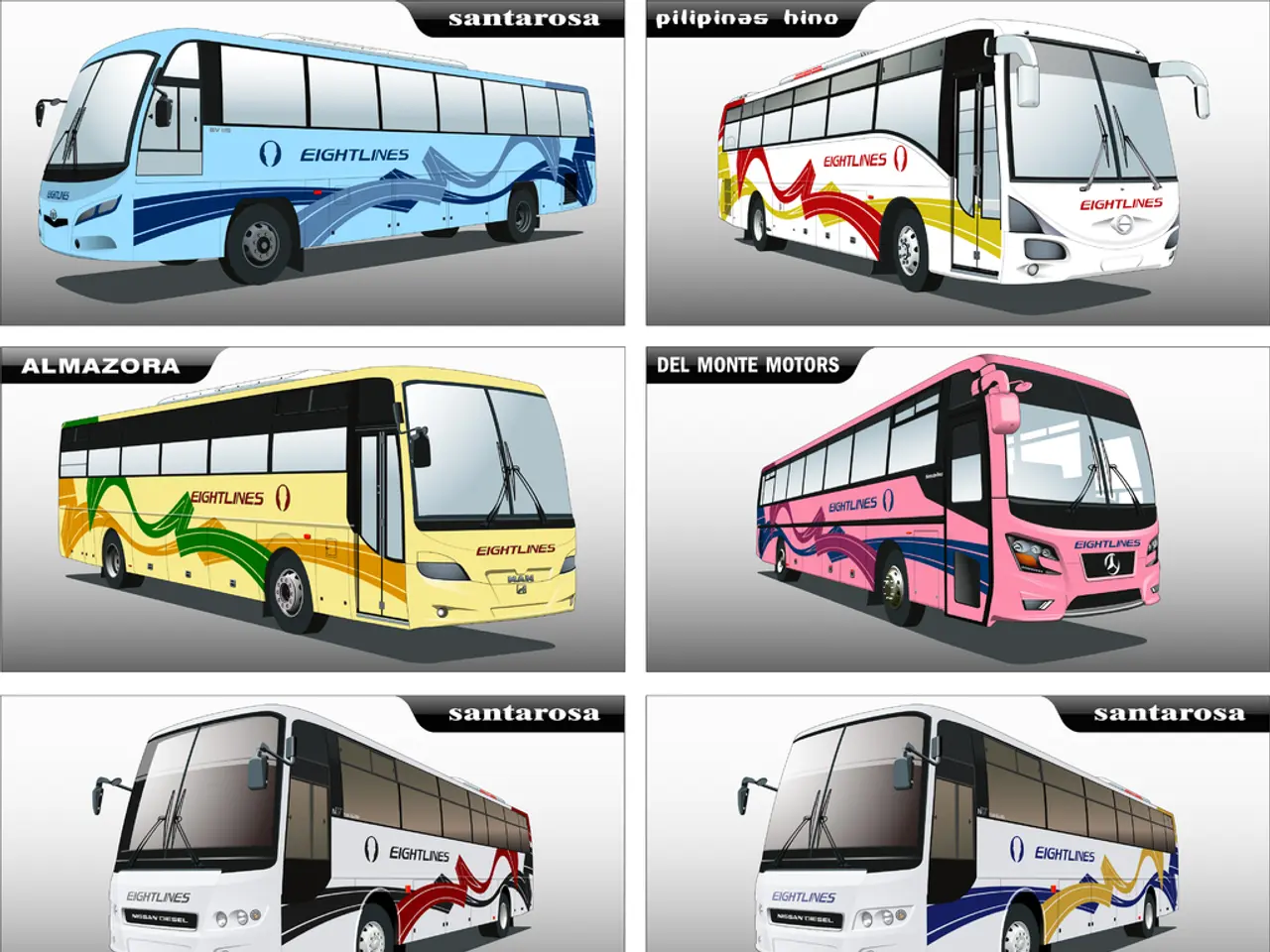Transit Company Plans to Go Public through Betting on Smart Transportation Technologies
In the realm of public transportation, digital transformation is reshaping the way we travel. One company at the forefront of this revolution is Via Transportation, whose consumer app, Citymapper, serves as a digital front door for millions of travelers worldwide.
Via's platform offers journey planning with estimates that are 15% more accurate than industry norms, making commuting a smoother and less stressful experience. This app has become integral to daily commuting using buses, vans, and shuttles.
Via's system integrates traditionally independent functions such as fare media, validators, clearing, paratransit reservations, school bus rosters, and micro-transit dispatch onto a single, cloud platform. This integration streamlines operations and enhances efficiency.
The company's unified stack includes planning tools, real-time dispatch, call center support, and passenger apps for planning, booking, and paying. Via Transportation also sells payment processing as a tech-enabled service alongside fleet and driver management.
The report titled "How the World Does Digital" found that more than 14% of individuals use a local travel app at least weekly. Individuals using these apps collectively spend more than 4 "activity days" per month.
The global public-transport technology market is valued at $545 billion, growing about 5% annually. Via identifies an $82 billion serviceable market across North America and Western Europe, with a broader $250 billion total addressable market when including large bus networks and ticketing.
Efficiency gains come from adopting AI for communication and real-time surveillance in rail systems, digital apps that unify multiple passenger services, and smart road infrastructure that incorporates modern lighting, dedicated lanes, and underground utilities to support urban mobility.
Future growth in digital transformation for public transportation is expected to be driven by the development of comprehensive digital ecosystems integrating planning, booking, payment, and real-time operational data. Expansion of AI-enabled features such as predictive maintenance, route optimization, passenger flow management, and personalized services is also anticipated.
Broader deployment of contactless payment methods and mobile apps for seamless multimodal commuting, smart infrastructure upgrades that enhance data collection and connectivity, and strengthening interoperability and back-office modernization are key areas of focus for the future.
Via Transportation, a company planning to go public, detailed the shift towards digital scheduling, real-time dispatch, and call center support in its recent prospectus with the Securities and Exchange Commission. Agencies using Via's platform can set eligibility, route trips across modes, and settle the fare using various payment methods (credit card, digital wallet, or voucher) without requiring riders or staff to switch between systems.
This digital transformation promises a future where improved efficiency, passenger convenience, and sustainability are realized through robust digital platforms and AI-driven intelligence across public transport systems globally. Despite challenges such as outdated IT systems and data accessibility issues, the progress and innovations in digital transformation are evident, particularly in regions embracing smart and AI-driven solutions.
- Via Transportation's platform includes a unified stack that offers not only planning tools and real-time dispatch but also payment processing, making it easier for passengers to pay for their journeys.
- In the future, the digital transformation of public transportation is expected to be driven by the development of comprehensive digital ecosystems that integrate planning, booking, payment, and real-time operational data.
- The global public-transport technology market is valued at $545 billion, with Via identifying an $82 billion serviceable market across North America and Western Europe, and a broader $250 billion total addressable market when including large bus networks and ticketing.
- The report "How the World Does Digital" found that more than 14% of individuals use a local travel app at least weekly, and that individuals using these apps collectively spend more than 4 "activity days" per month.
- The efficiency gains in the public transportation industry come from adopting AI for communication and real-time surveillance, digital apps that unify multiple passenger services, and smart road infrastructure that incorporates modern technology for urban mobility.




